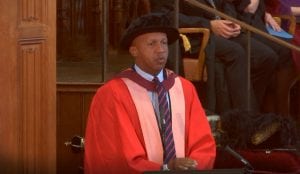By Dr Emma Hitchings, Senior Lecturer in Law (University of Bristol Law School).
 Mills v Mills [2018] UKSC 38 is an example of a rare ‘everyday’ financial remedies case on divorce that has been decided at the highest appellate level – the Supreme Court. It was handed down in the middle of July. Costs, time, energy and a host of other factors involved in taking a case to an adjudicated final hearing, mean that over 90% of financial remedies cases settle before reaching this stage (Family Court Statistics Quarterly, January – March 2018) and it is only a tiny minority that end up being appealed, let alone appealed to the highest level. That one of those rare appellate cases is an ‘everyday’ case where the assets and finances involved are pretty ordinary, is particularly note-worthy. The usual wealthy entrepreneurs or celebrities are absent, and instead, the Mills case involves a couple, who on divorce in 2002, agreed a capital settlement of £230,000 to the wife, £23,000 to the husband, and ongoing monthly spousal periodical payments of £1,100 a month from the husband to the wife. This is not a case about millionaires or billionaires, but an ‘everyday’ couple, where the financial needs of the parties dominate.
Mills v Mills [2018] UKSC 38 is an example of a rare ‘everyday’ financial remedies case on divorce that has been decided at the highest appellate level – the Supreme Court. It was handed down in the middle of July. Costs, time, energy and a host of other factors involved in taking a case to an adjudicated final hearing, mean that over 90% of financial remedies cases settle before reaching this stage (Family Court Statistics Quarterly, January – March 2018) and it is only a tiny minority that end up being appealed, let alone appealed to the highest level. That one of those rare appellate cases is an ‘everyday’ case where the assets and finances involved are pretty ordinary, is particularly note-worthy. The usual wealthy entrepreneurs or celebrities are absent, and instead, the Mills case involves a couple, who on divorce in 2002, agreed a capital settlement of £230,000 to the wife, £23,000 to the husband, and ongoing monthly spousal periodical payments of £1,100 a month from the husband to the wife. This is not a case about millionaires or billionaires, but an ‘everyday’ couple, where the financial needs of the parties dominate.
Guidance provided from the higher courts has, to date, focused on the larger-money case and the associated issues relevant to those wealthy individuals who can afford to litigate on issues such as the nature of their ‘special contribution’ and whether this should result in an unequal division of the family assets due to one spouse’s exceptional skill or acumen in the business or entrepreneurial world. It was therefore to be hoped that the Supreme Court would seize this rare opportunity and provide some much-needed broader guidance for family lawyers on ‘needs-based’ cases – the usual ‘run-of-the mill’ case, which although does not usually make headlines, takes up the vast majority of Family Court financial remedy business up and down the country. (more…)
 In July 2018, the University of Bristol awarded a Doctorate of Law honoris causa to Professor Bryan Stevenson.
In July 2018, the University of Bristol awarded a Doctorate of Law honoris causa to Professor Bryan Stevenson. 




